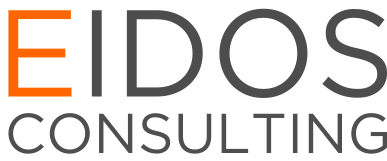‘Transferable skills’ is now a common phrase in the workplace, and it’s true that many employers desire ‘mix and match’ skills for any given role they may have to offer.
Some skills are so transferable that even if they are learned and used in the workplace, they can be factored into day-to-day living, improving confidence and professional manner. Consider communication, and the ability to effectively collaborate with others. Strong people skills are highly sought-after in most job roles, for a long list of very practical and undoubtedly obvious reasons. As a bonus, self-improvement in such areas can strengthen character and could lead to all sorts of new opportunities, in or out of work.
It’s not all about learning new tricks, and, in some cases, it’s how to use the ones that you already have to hand. The chance that you or someone you work with are harbouring hidden talent is quite high! In my own experience, working previously as an internal marketer, I have collaborated with a number of colleagues who have been keeping secrets… secrets about how talented they actually are!
Let us consider another transferable skill, copywriting. Have you ever considered that someone in your workforce may have a flair for writing? It is likely that a colleague (for example, someone who spends a lot of time in written conversation with clients) may also be able to write other pieces such as industry articles, blogs, award applications, social media posts, and so on. If you do not have an in-house marketing team, then you may have access to, right there, someone who knows your business and can write about it, in a driven and motivated way which reflects company ethics and values.
Many times in my marketing career, I unearthed colleagues who are keen and passionate writers and speakers, or have excellent knowledge banks that money simply couldn’t buy. In one instance, a former colleague of mine (who worked in customer support) had volunteered to record the voice-over for the company’s automated phone line system. Through this activity, I learned that he used to work in radio, and still ran a podcast in his own time. Because his role at the business seemed directly irrelevant, he had not been asked to utilise those skills at work. I have had some experience in radio production, and while presenting skills were never my strongpoint, I noticed straight away that he had fantastic elocution and the natural ability to carry a conversation – a skill that many people struggle with (even in regular conversation), so we instantly started to plan promotional podcasts with him, to discuss new products and services that our company had to offer.
I can also recall many occasions when I had compiled written pieces, for example for industry awards or magazine articles, and I had relied on colleagues from other departments to provide me with the nitty-gritty, in-depth information that really did need years of industry experience to pull together. What I usually received was often too much or too little in terms of content, and sometimes in a very basic format. However, every now and then I received a write-up that was near perfect and did not need much work at all, yet the author had never written or published anything on behalf of the company beforehand. In those cases, they were the marketer and I simply their proof-reader. It saved a lot of time and expressed a true passion for their line of work, demonstrating what a credit they were to their business.
While not everyone may be as eloquent a writer as they are a speaker (or the other way around) that is not to say they cannot be a huge help to their organisation, and these days there are other ways to get more involved, in less time-consuming ways. In recent years, business staff have been encouraged more and more to engage in social media, by ‘Liking’, sharing and creating professional industry content, including their company’s own posts. It demonstrates the engagement and professional acumen that plenty of customers, clients or business partners would be interested to see. It is one thing for business owners, directors and senior management to share a good news story, but what about the first points of contact? The salespeople, the customer service representatives, the human resources team? Those who interact most frequently with the end users are some of the best marketing tools a business can have, and ultimately any positive and relatable interaction with the outside world is going to play a major role for any sort of service provider. While you cannot force anyone to post anything on personal social media, you can gently encourage staff to share trending and relatable articles (on a professional platform such as Linked In). By asking your colleagues to share existing industry stories today, they could also be writing their own tomorrow.
In other words, if your staff can write, work with them. If your staff can talk the talk but need to develop their writing skills, still work with them. If someone needs a bit of support to upskill, utilise what they know already or simply think outside the box, then, you guessed it… work with them!
Lauren’s own experience
I have always been interested in writing and the media, and after completing a City and Guilds diploma in Broadcast Journalism, I got a taste for writing and content creation. I later graduated from University with industry-standard experience in photo and film production, visual journalism, website design and marketing techniques.
At face value, my learned skills were applicable to the media and film industry, but when broken down, were also very practical in marketing, my career for the next 8 years. Working mainly under annual contracts, I learned much about professional marketing and different business sectors, such as education, telecommunications, manufacturing, and commercial retail. In every scenario I was producing written and visual content, working with different branding styles and working to a variety of industry standards.
My experience within Education was a real hit with me, I loved the diversity of working with so many different people and to learn about course content in order to successfully promote them. My very first job as a marketer was to sell the success of a University archaeology course, following a feature in a BBC historical documentary about Alfred The Great (the press launch of which I also attended to assist with). Later in my career, I worked closely with business Learning and Development teams, who needed my assistance with the design and promotion of their own or partner-led training programmes. I really enjoyed the satisfaction of knowing that my work has helped someone on their own career path.
Joining Eidos has been a pivotal point in my own career, and given my experience and interests, making the transition to e-learning seemed like the natural course of action for me to take!

Making best use of your employee's skills
Do you put aside time to discuss your employee’s ambitions with them, as well as identify and plan how they can best contribute to the business? Ongoing personal development reviews will help you to do this.
Access PDR template


